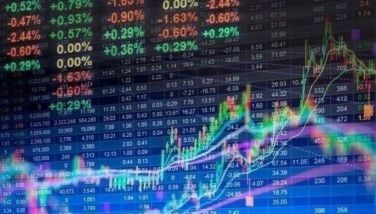Big oil firms urged to support use of alternative fuels
May 21, 2006 | 12:00am
The country’s four major oil companies –Petron Corp., Pilipinas Shell Petroleum Corp., Chevron Philippines Inc. (formerly Caltex) and Total Philippines Corp. – are being urged to support the use of alternative fuels.
"We are optimistic that the Big 3 oil firms plus Total will ultimately accept the use of alternative fuels including biodiesel especially with the continuing volatility of world crude prices," Chemrez Inc. public affairs officer Carlos Palad said.
Palad noted that the local branches of Shell, Caltex and Total have no reason to oppose the use of biodiesel products in the Philippines as their international counterparts have been advocating for it.
Petron, as partly government-owned, should be supportive of government’s initiatives to promote the use of alternative fuels.
The Chemrez official noted that Chevron recently bought a 22 percent stake in a biodiesel company in Texas, USA.
Palad also took note of Total’s achievements in biodiesel technology when it incorporates two percent of VOME (vegetable oil methyl ester) in automotive diesel produced in its six French refineries.
Since 2002, the Total group has been marketing three blend strengths (rapeseed diesel at five percent, 10 percent and 30 percent). Under a special exemption system, the group sells diesel containing up to 30 percent VOME to operators of captive fleet with their own storage facilities such as the French presidential palace," he said.
According to Palad, the Shell group is also into using vegetable oil in their diesel fuel as part of its commitment to use low carbon fuels.
Officials from Shell and Caltex have been very vocal about their concerns on the use of alternative fuel sources such as biodiesel and ethanol in cars.
Though both firms have committed to support the government in the quest for alternative ways to cushion the impact of rising crude prices and clean the air from fumes, they are particularly apprehensive about the problems that would be caused by the use of these biofuels.
"There have been tests to prove that these biofuels work well on cars and environment. The oil firms are just hesitant to recognize these studies. We should be one in this effort. We need to work hand-in-hand to achieve our ultimate goal which is to have cleaner air in the future," Palad said.
Chemrez is one of the largest producers of coco-biodiesel in the Philippines and in Asia. It recently inaugurated its P950 million biodiesel plant in Quezon City capable of producing 60 million liters of biodiesel a year.
"We are optimistic that the Big 3 oil firms plus Total will ultimately accept the use of alternative fuels including biodiesel especially with the continuing volatility of world crude prices," Chemrez Inc. public affairs officer Carlos Palad said.
Palad noted that the local branches of Shell, Caltex and Total have no reason to oppose the use of biodiesel products in the Philippines as their international counterparts have been advocating for it.
Petron, as partly government-owned, should be supportive of government’s initiatives to promote the use of alternative fuels.
The Chemrez official noted that Chevron recently bought a 22 percent stake in a biodiesel company in Texas, USA.
Palad also took note of Total’s achievements in biodiesel technology when it incorporates two percent of VOME (vegetable oil methyl ester) in automotive diesel produced in its six French refineries.
Since 2002, the Total group has been marketing three blend strengths (rapeseed diesel at five percent, 10 percent and 30 percent). Under a special exemption system, the group sells diesel containing up to 30 percent VOME to operators of captive fleet with their own storage facilities such as the French presidential palace," he said.
According to Palad, the Shell group is also into using vegetable oil in their diesel fuel as part of its commitment to use low carbon fuels.
Officials from Shell and Caltex have been very vocal about their concerns on the use of alternative fuel sources such as biodiesel and ethanol in cars.
Though both firms have committed to support the government in the quest for alternative ways to cushion the impact of rising crude prices and clean the air from fumes, they are particularly apprehensive about the problems that would be caused by the use of these biofuels.
"There have been tests to prove that these biofuels work well on cars and environment. The oil firms are just hesitant to recognize these studies. We should be one in this effort. We need to work hand-in-hand to achieve our ultimate goal which is to have cleaner air in the future," Palad said.
Chemrez is one of the largest producers of coco-biodiesel in the Philippines and in Asia. It recently inaugurated its P950 million biodiesel plant in Quezon City capable of producing 60 million liters of biodiesel a year.
BrandSpace Articles
<
>
- Latest
- Trending
Trending
Latest
Trending
Latest
Recommended



























